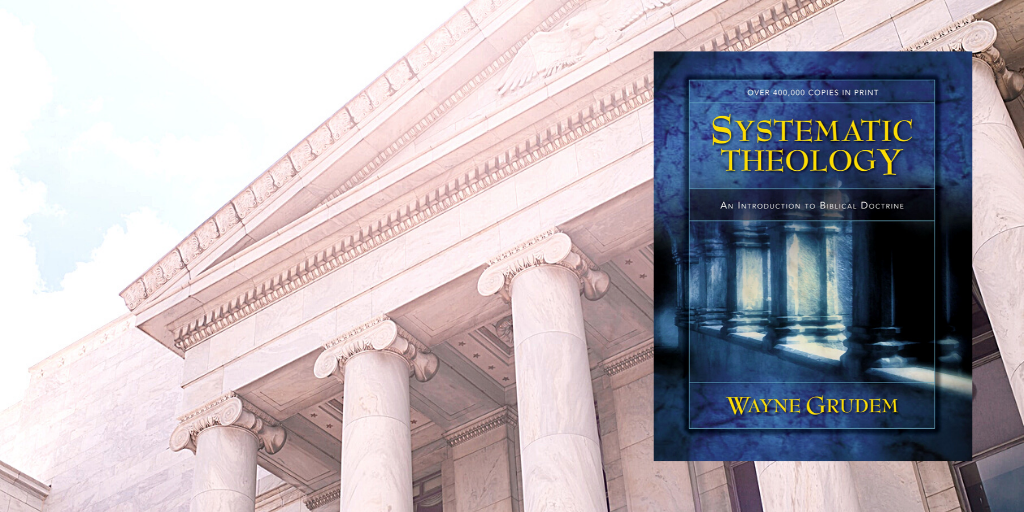Reading Systematic Theology with Wayne Grudem – Who will be judged? What is hell?
This post is part of a 50+ post series from the classic work by Wayne Grudem (PhD, Cambridge), Systematic Theology: An Introduction to Biblical Doctrine. The aim of each post is to provide an overview of each chapter in the book and related resources for each topic.
Synopsis of Chapter
In chapter 56, Wayne Grudem covers the final judgment of everyone and the eternal punishment of unbelievers. Grudem explores when the final judgment will happen and several implications of the judgment including its necessity, God’s justice, and the motivation for evangelism. Grudem also discusses hell and the alternative view of annihilationism.
The Fact of Final Judgment
God will judge people. Scripture affirms in many places that believers and unbelievers will stand before the Lord on Judgment Day. This will be a day of blessing for the believer and a day of horror for the unbeliever.
- “And I saw the dead, great and small, standing before the throne, and books were opened. Then another book was opened, which is the book of life. And the dead were judged by what was written in the books, according to what they had done. And the sea gave up the dead who were in it, Death and Hades gave up the dead who were in them, and they were judged, each one of them, according to what they had done.” (Revelation 20:12-13)
- “The times of ignorance God overlooked, but now he commands all people everywhere to repent, because he has fixed a day on which he will judge the world in righteousness by a man whom he has appointed; and of this he has given assurance to all by raising him from the dead.” (Acts 17:30-31)
- “But because of your hard and impenitent heart you are storing up wrath for yourself on the day of wrath when God’s righteous judgment will be revealed.” (Romans 2:5)
However, this final judgment had many precursors. For instance, God rewarded those who were faithful to him on the earth: Noah, Abraham, Moses, David, and others. But God punished people and nations who disobeyed him: the pre-Flood world, Sodom and Gomorrah, disobedient Israel, and others. God has judged people throughout human history, but the final judgment will be the ultimate, most severe judgment.
The Time of Final Judgment
As for when the final judgment happens, it depends on how you understand the millennium. In the premillennial understanding, the final judgment will happen after Christ returns, the millennium, and the final rebellion. In the amillennial and postmillennial understanding, the final judgment happens immediately after Christ returns. The pretribulational premillennial understanding is unique in that it argues for three separate judgments: two for believers and one for unbelievers after the millennium. Whatever the position, unbelievers are sentenced to everlasting punishment after the last judgment.
The Nature of Final Judgment
There are several aspects of the final judgment that the New Testament reveals:
- Jesus Christ will be the judge. The right to judge everyone was given by the Father to his son, Jesus. (John 5:26-27; Acts 10:42; 2 Timothy 4:1)
- Unbelievers will be judged. All unbelievers, whether great or insignificant will be judged with degrees of punishment according to what they have done (Luke 12:47-48; Romans 2:5-7; Revelation 20:12)
- Believers will be judged. Even believers will stand before Jesus’ judgment seat to give an account of ourselves to the Lord. At that judgment, we will receive rewards for our works (Matthew 25:31-46; Romans 14:10-12; 2 Corinthians 5:10)
- Angels will be judged. The Scripture is clear that fallen angels will be judged. It is also possible that righteous angels will be evaluated, though the Bible is not as clear on that matter. Believers will judge angels (1 Corinthians 6:3; 2 Peter 2:4; Jude 6).
- Believers will help in the work of judgment. In two passages, we learn that believers will help Jesus in the final judgment (1 Corinthians 6:2-3; Revelation 20:4).
Hell
In discussing final judgment, it’s necessary to also understand the doctrine of hell. Hell is defined as “a place of eternal conscious punishment for the wicked.” There are multiple passages that describe hell including…
- “And cast the worthless servant into the outer darkness. In that place there will be weeping and gnashing of teeth.” (Matthew 25:30)
- “Then he will say to those on his left, ‘Depart from me, you cursed, into the eternal fire prepared for the devil and his angels.’” (Matthew 25:41)
- “The poor man died and was carried by the angels to Abraham’s side. The rich man also died and was buried, and in Hades, being in torment, he lifted up his eyes and saw Abraham far off and Lazarus at his side. And he called out, ‘Father Abraham, have mercy on me, and send Lazarus to dip the end of his finger in water and cool my tongue, for I am in anguish in this flame.’” (Luke 16:22-24)
- “and the devil who had deceived them was thrown into the lake of fire and sulfur where the beast and the false prophet were, and they will be tormented day and night forever and ever…And if anyone’s name was not found written in the book of life, he was thrown into the lake of fire.” (Revelation 20:10,14)
Some object to the doctrine of hell. They claim that unbelievers will not be punished eternally, but instead will ultimately be destroyed or annihilated. Called “annihilationism,” this belief suggests sinners will suffer for a period of time for their sin, but the punishment will not be forever. They object to the doctrine of hell for several reasons and support their view by saying “destruction” can mean the cessation of existence (Phillipians 3:19, 1 Thessalonians 5:3). Destruction can mean that, but does not necessarily imply annihilation. We must weigh all the passages. Annihilationism is a minority position within evangelicalism and throughout church history.
Applications of Final Judgment
There are several applications to God’s judgment. For one, God’s justice will be on display for everyone. Nobody will be able to say to God they were treated unfairly because all of his judgments are righteous and true (Psalm 19:9). After this judgment, everyone will be able to declare:
“After this I heard what seemed to be the loud voice of a great multitude in heaven, crying out, ‘Hallelujah! Salvation and glory and power belong to our God, for his judgments are true and just’” (Revelation 19:1-2).
Secondly, the doctrine of final judgment satisfies our inward sense of a need for justice in the world and the grounding to forgive people. We all want the world to run rightly. And we are not satisfied when wrongdoing is ignored or approved. Understanding that judgment will ultimately happen gives us a settled sense that justice will be done. It also helps us forgive others knowing everyone will be dealt with even if we forgive them. And it helps us rejoice when we read “the wrongdoer will be paid back for the wrong he has done, and there is no partiality.” (Colossians 3:25)
Thirdly, knowing final judgment will happen motivates believers for righteous living and evangelism. Jesus told us to, “but lay up for yourselves treasures in heaven, where neither moth nor rust destroys and where thieves do not break in and steal.” (Matthew 6:20) That’s a direct appeal to our eternal self-interest: do good and you will be rewarded. In addition, knowing that unbelievers will be judged eternally we should be motivated to share the gospel with them. Paul said, “Therefore, knowing the fear of the Lord, we persuade others.” (2 Corinthians 5:11) Just as Paul was motivated by the final judgement, we too should be motivated by it as well.
“Then I saw a great white throne and him who was seated on it. From his presence earth and sky fled away, and no place was found for them. And I saw the dead, great and small, standing before the throne, and books were opened. Then another book was opened, which is the book of life. And the dead were judged by what was written in the books, according to what they had done. And the sea gave up the dead who were in it, Death and Hades gave up the dead who were in them, and they were judged, each one of them, according to what they had done.” (Revelation 20:11-13)
Special Terms
- annihilationism
- conditional immortality
- eternal conscious punishment
- final judgment
- great white throne judgment
- hell
- judgment of the nations
- universalism
Resources: Wayne Grudem
- Wayne Grudem: Book: Systematic Theology: An Introduction to Biblical Doctrine
- Wayne Grudem: 148 Lectures on Systematic Theology
Related Resources
- OpenBible.info: Verses on the Millennium
- Brandon Clay: What is Hell?
- Louis Berkhof: The Final Judgment
- John Piper (Audio: 12:17): Is Everyone Punished the Same in Hell?
- Joseph R. Nally Jr: An Eternal Hell is for Real: The Heresy of Annihilationism?
Image credit from Katie Moum on Unsplash.








